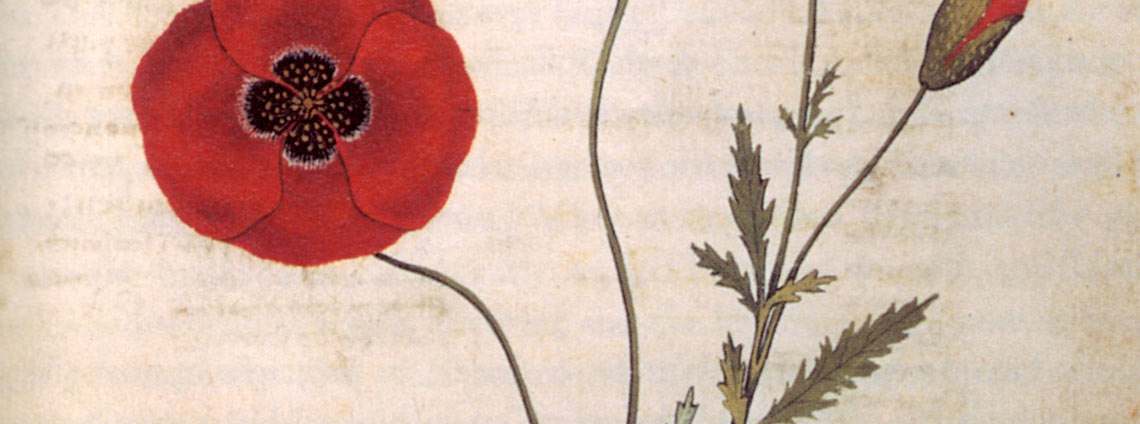Orpheum Annex | Map
Stephen Stubbs, and Pacific MusicWorks; Catherine Webster, soprano; Danielle Reutter-Harrah, soprano; Reginald Mobley, countertenor; Songs of Love and War, tenor; Aaron Sheehan, tenor; Douglas Williams, bass; Tekla Cunningham, violin; Linda Melsted, violin; Elisabeth Reed, viola da gamba; Stephen Stubbs, lute and direction; Maxine Eilander, harp & harpsichord
“The man is a genius. Oh, I meant Stubbs. But Monteverdi, too, was no slouch.” – The Seattle Times
“If Pacific MusicWorks ever does a concert at St. James Cathedral, just go. Don’t even stop to look at what’s on the program. Actually, see them anywhere. And actually, do look at the program, because it’s bound to be brilliant.” John Sutherland, The Seattle Times, Dec.2, 2012
Claudio Monteverdi’s Eighth and last book of Madrigals includes his most revolutionary and stirring music. In these works, Love and War become indivisible metaphors that Monteverdi evokes with the most exciting musical devices of the period. Book 8 represents the pinnacle of 17th-century musical expression and still has the power to move listeners today.
Generously sponsored by Early Music Vancouver’s Board of Directors.
Programme
Hor ch’el ciel Prima Parte e Seconda Parte
Chiomo d’oro
Gira il nemico insidioso Amore
Instrumental Sonata X – Dario Castello
Ego flos campi
Su,su,su pastorelli vezzosi
Lamento d’Arianna
Augelin
Intermission
Lamento della Ninfa
Instrumental
Ogni amante è guerrier
Altri Canti di Marte –Prima parte
Programme notes
In Claudio Monteverdi’s extraordinarily long composing career he led the way for the entire musical world from the Renaissance to the Baroque, from the a cappella madrigal to the fully realized “madrigali concertanti” replete with continuo accompaniment and obbligato strings, and from the early court opera to the world’s first public operas in Venice. He published his eighth book of “madrigals” (Madrigali guerrieri, et amorosi…libro ottavo, Venice, 1638) when he was seventy-one years old, nineteen years after the seventh book of madrigals was printed. Book Eight holds a place of highest significance both for its contents and for its extensive preface. This preface serves as a kind of manifesto not only of his personal philosophy of composition, but for the aesthetic goals of modern music in his time.
Monteverdi’s explicit aim was for music to express the entire range of man’s passions. He came to believe that there was a particular element heretofore missing from the expressive range of music, and he determined to supply it. Earlier composers, he believed, had realized only two of man’s three major passions: the soft and the moderate. A third passion, agitation, was too important to be overlooked, and he now intended to rectify the omission:
I have reflected that the principal passions or affections of our mind are three, namely, anger, moderation and humility or supplication; so the best philosophers declare, and the very nature of our voice indicates this in having high, low and middle registers. The art of music also points clearly to these three in its terms “agitated,” “soft,” and “moderate” (concitato, molle, and temperato). In all the works of earlier composers I have indeed found examples of the “soft” and the “moderate” but not of the “agitated,” a genus described by Plato in these words: “Take that harmony that would fittingly imitate the utterances of a brave man who is engaged in warfare”. And since I was aware that it is contrasts which greatly move our minds, and that this is the purpose which all good music should have—for this reason I have applied myself with no small diligence and toil to rediscover this genus.
My development of this warlike genus has given me occasion to write certain madrigals that I have called guerrieri. And since the music played before great princes at their courts to please their delicate taste is of three kinds according to the method of performance, I have indicated these in my present work with the titles guerriera, amorosa, and rappresentativo.
The phrase “contrasts which greatly move our minds” explains not only the title of the book, but also the organization of the collection and nearly each work within it. For this collection, Monteverdi chose poems with highly contrasted or conflicting emotions, often depicting the lover as warrior, or the internal state of war in the lover’s heart. The two contrasting emotions of the title—warlike and amorous—become the subheadings for the two halves of the book: Canti Guerrieri for the first, and Canti Amorosi for the second. The two large works that open and close our program are emblematic of each half in turn. Hor che’l ciel, the quintessential canto guerriero, sets a magnificent sonnet by Petrarch which presents the opportunity for vivid musical contrasts: the night is serene with all of nature at peace, yet in the lover’s heart, war rages. The introduction to the Canti Amorosi is the setting of Marino’s poem Altri canti di Marte, in which the first line announces the poetic agenda: “Let others sing of War, I sing of Love.”
Hor che’l ciel, e la terra
(Monteverdi, Madrigali guerrieri, et amorosi…libro ottavo, Venice, 1638)
With this deeply expressive setting of Petrarch’s sonnet, Monteverdi simultaneously declares his aesthetic allegiance to the venerated fourteenth-century poet and also to the newest musical credo of limpid declamation. The piece begins with a hushed, almost motionless, depiction of the stillness of night… then erupts with the full force of Monteverdi’s new invention of musical warfare to depict the inner life of the harried lover.
Chiome d’oro
(Monteverdi, Concerto. Settimo libro de madrigali, Venice, 1619)
One of Monteverdi’s most perennially popular pieces, this charming duet for a pair of sopranos, set against a pair of violins, dances along above a jaunty walking bass until the two moments depicting the lovers death (in this genre, likely to be the “little death” of sexual climax), which are given an expansive and sensuous treatment.
Gira il nemico
(Monteverdi, Madrigali guerrieri, et amorosi…libro ottavo, Venice, 1638)
Although this piece has in common with Hor che’l ciel and Ogni amante
è guerrier the use of Monteverdi’s concitato (warlike) style, it is here put to use in a jocular context that harkens back to the sixteenth-century Neapolitan canzone villanesca, which was a musical emanation of the large phenomenon of street theater known as commedia dell’arte.
Ego flos campi
(Monteverdi, Seconda raccolta de sacri canti, Calvi, Venice, 1624)
This lovely setting of a text from the Song of Songs belongs to the same lineage as Nigra sum and Pulchra es from Monteverdi’s 1610 Vespers.
Sonata terza
(Dario Castello, Sonate Concertate in Stil Moderno, Libro II, Venice, 1629)
Dario Castello, whose biography is almost a perfect blank, was known to have worked at San Marco during Monteverdi’s regime as maestro di cappella there. His plastic and expressive music is the closest instrumental idiom we have to Monteverdi’s exclusively vocal output.
Et e pur dunque vero
(Monteverdi, Scherzi musicali, Venice, 1632)
This piece is unique in its form, not only within Monteverdi’s works, but altogether. There are many pieces for solo voice with continuo which partake of the formal device here of strophic variation, where each succeeding strophe uses a given harmonic ground on which to build various melodic structures, but these are usually divided by a recurring “ritornello,” either for the continuo alone or with violins. The departure here is to vary the interludes for solo violin as much as the vocal strophes themselves—in a sense, the violin takes on its own narrative. It seems that Monteverdi’s thought was to have the violin assume the emotional state at the end of each strophe, and lead the way to the emotional state at the beginning of the next.
Augellin
(Monteverdi, Concerto. Settimo libro de madrigali, Venice, 1619)
Like Chiome d’oro, Augellin begins with the foundation of an energetic walking bass line to support the delightful figurations for the two tenors and bass that together paint a picture of the delicate bird; then, to express the first-person message of the tortured lover, the music changes abruptly to an adagio outpouring of emotion.
Lamento della Ninfa
(Monteverdi, Madrigali guerrieri, et amorosi…libro ottavo, Venice, 1638)
Amongst the various “staged” and “unstaged” compositions of book eight, the Lamento della Ninfa occupies a unique position. Although Monteverdi places it explicitly in the category of “genera rappresentativa,” its poetic origin is a modest canzonetta by Rinuccini, which had previously been set by other composers as a simple strophic song. Monteverdi, however, saw the potential to create a voice of the narrator for three men’s voices, and to organize the scena as a scene-setting prologue for the narrator, followed by the nymph’s hyper-expressive (one could easily say operatic) lament of lost love and abandonment, and ending with a summation from the trio.
Sonata Undecima
(Dario Castello, Sonate Concertate in Stil Moderno, Libro II, Venice, 1629)
Just as in Monteverdi’s duets for two sopranos or two tenors, Castello’s sonatas featuring two violins use the gamut of techniques from playful counterpoint to homophonic rhetoric to solo flights of fancy. Here, as in Monteverdi’s trios for two tenors and bass which feature so prominently in this program, there is the addition of a third independent part for the bowed bass instrument.
Ogni amante è guerrier
(Monteverdi, Madrigali guerrieri, et amorosi…libro ottavo, Venice, 1638)
The title “Every Lover is a Warrior” expresses succinctly the atmosphere not only of this piece, but of the whole collection. Beginning with a tenor duet like those that had dominated the seventh book in 1619, the centerpiece of this work is an extended monologue for bass. It is during this section that Monteverdi pays explicit homage to the dedicatee of book eight—the new Holy Roman Emperor, Ferdinand III.
L’eroica à 3
(Andrea Falconieri, Il libro primo di canzone, sinfonie, fantasie…, Naples, 1650)
Born in Naples, Falconieri received his musical training in Parma and worked at the courts of Mantua (where he may have known Monteverdi) and Florence. After travels in Spain and France he ended up in Genoa, until he was censured for “distracting the nuns with music.” He eventually returned to his hometown, where he became maestro di cappella. His L’eroica, from his one published volume of instrumental music, includes a wonderfully wayward ciaccona as its middle section.
Altri canti di Marte
(Monteverdi, Madrigali guerrieri, et amorosi…libro ottavo, Venice, 1638)
This large-scale piece, designed by Monteverdi to introduce his Canti Amorosi, will serve for us as the farewell to this rich repertoire of striking contrasts, sensuous beauties, and stirring emotions. Next to the final operas, L’incoronazione di Poppea and Il ritorno d’Ulisse in patria, this is Monteverdi’s final musical will and testament.
Joan Conlon and Stephen Stubbs
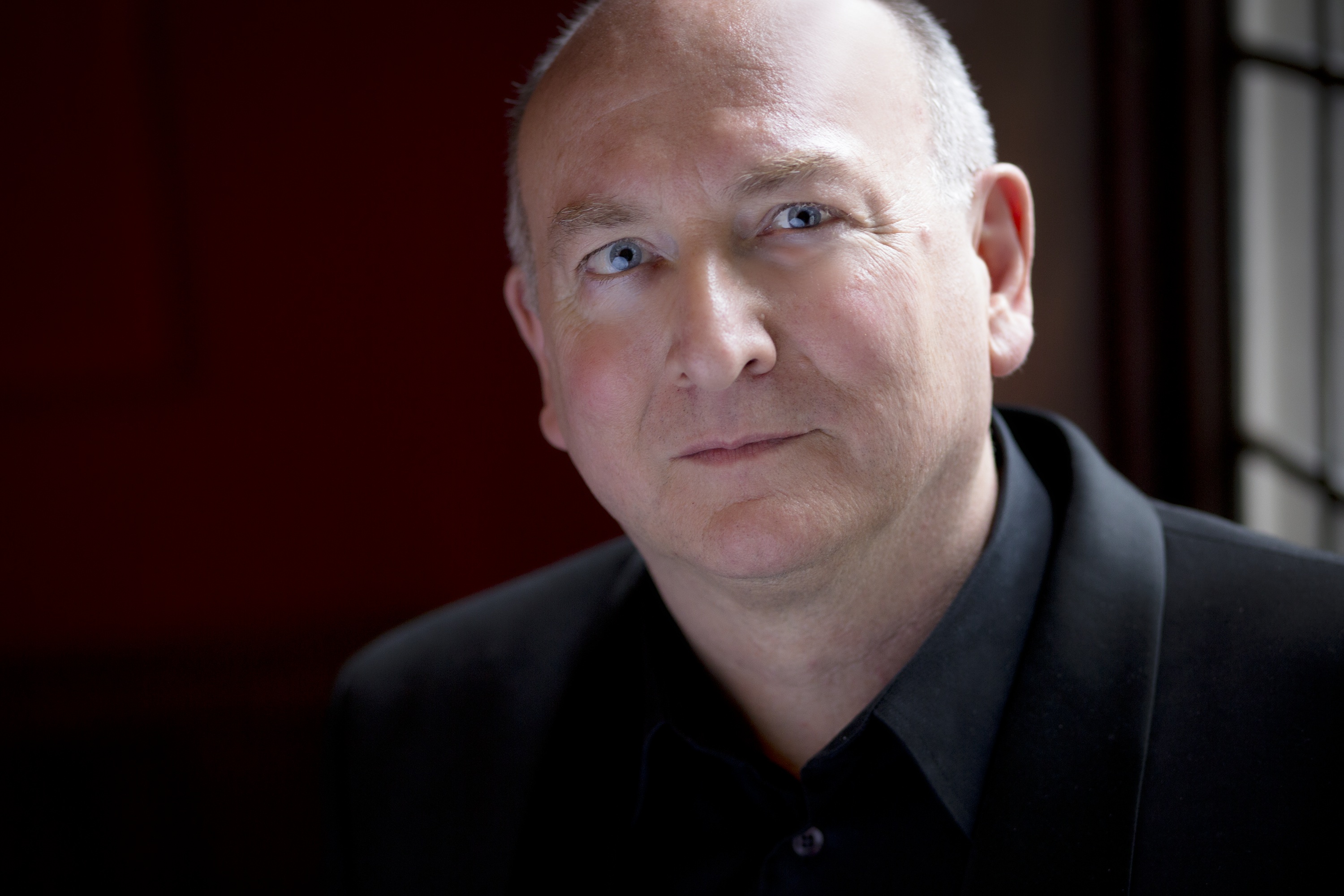
Stephen Stubbs, and Pacific MusicWorks
Stephen Stubbs, who won the GRAMMY® Award as conductor for Best Opera Recording 2015, spent a 30-year career in Europe. He returned to his native Seattle in 2006 as one of the world’s most respected lutenists, conductors, and baroque opera specialists.
In 2007 Stephen established his new production company, Pacific MusicWorks, based in Seattle. He is the Boston Early Music Festival’s permanent artistic co-director, recordings of which were nominated for five GRAMMY awards. Also in 2015 BEMF recordings won two Echo Klassik awards and the Diapason d’Or de l’Année.
In addition to his ongoing commitments to PMW and BEMF, other recent appearances have included Handel’s Amadigi for Opera UCLA, Mozart’s Magic Flute and Cosi fan Tutte in Hawaii, Handel’s Agrippina and Semele for Opera Omaha, Cavalli’s Calisto and Rameau’s Hippolyte et Aricie for Juilliard and Mozart’s Il re pastore for the Merola program in San Francisco. He has conducted Handel’s Messiah with the Seattle, Edmonton, Birmingham and Houston Symphony orchestras.
His extensive discography as conductor and solo lutenist includes well over 100 CDs, which can be viewed at stephenstubbs.com, many of which have received international acclaim and awards.
Stephen is represented by Schwalbe and Partners (schwalbeandpartners.com).

Catherine Webster, soprano
Soprano Catherine Webster is engaged regularly by many leading early music and chamber ensembles in North America. She has appeared as a soloist with Tafelmusik, Tragicomedia, Theatre of Voices, Netherlands Bach Society, Apollo’s Fire, American Baroque Orchestra, Magnificat, Musica Angelica, El Mundo, Four Nations Ensemble, Studio de Musique Ancienne de Montreal, Ensemble Masques, Les Voix Baroques, Early Music Vancouver, and at the Vancouver, Berkeley, Montreal and Boston Early Music Festivals.
Active also in contemporary music, Webster has appeared with The Kronos Quartet in Terry Riley’s Sun Rings and with Theatre of Voices and the Los Angeles Philharmonic in John Adam’s Grand Pianola Music.
Catherine Webster is a frequent collaborator with baroque opera directors Stephen Stubbs and Paul O’Dette, appearing under their direction in Early Music Vancouver’s production for the 2013 edition of Festival Vancouver in Monteverdi’s L’Incoronazione di Poppea and the premiere of Mattheson’s Boris Goudenov for the Boston Early Music Festival. She has recorded for Harmonia Mundi, Naxos, Musica Omnia, Analekta and Atma.
Catherine holds a Master’s in Music from the Early Music Institute at Indiana University and has been a guest faculty member and artist for The San Francisco Early Music Society’s summer workshops and the Madison Early Music Festival.
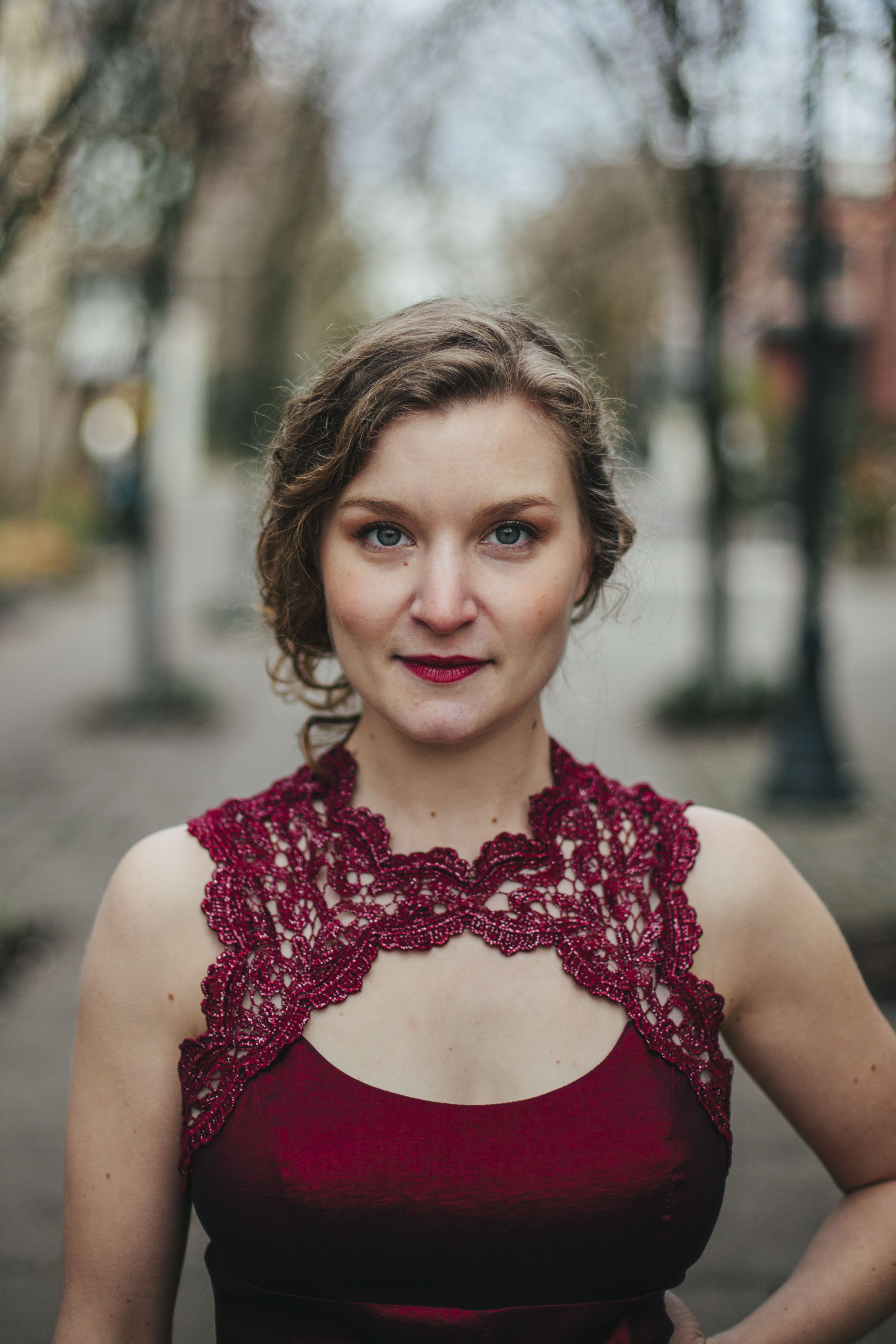
Danielle Reutter-Harrah, soprano
Danielle Reutter-Harrah has performed at the Boston Early Music Festival, with Seattle Symphony Orchestra, Seattle Opera, California Bach Society, American Bach Soloists, Baroque Chamber Orchestra of Colorado, Alabama Symphony, and Early Music Vancouver, among others. She most recently sang the role of Belinda in Baroque Chamber Orchestra of Colorado’s semi-staged rendition of Purcell’s Dido and Aeneas. In fall 2019 she performed with Pacific MusicWorks, the Byrd Ensemble and Early Music Vancouver. The 2018/19 season involved concerts of music by Brahms, Bach, Monteverdi, Handel, Clara Schumann and Fanny Mendelssohn, and others. Reutter-Harrah is a founding member of the voice and plucked strings duo Jarring Sounds, with Adam Cockerham on guitar, theorbo, Baroque guitar and lute. She sings frequently with Seattle’s Byrd Ensemble and Pacific MusicWorks. Danielle received her Bachelor’s of Music degree from the University of Denver’s Lamont School of Music and her Master of Music degree from the San Francisco Conservatory of Music. She lives in Seattle with her husband and son.
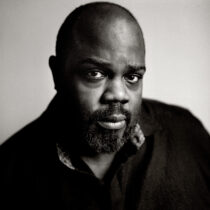
Reginald Mobley, countertenor
Noted for his ‘shimmering voice’ (BachTrack), American countertenor Reginald Mobley is highly sought after for the baroque, classical and modern repertoire.
Reginald leads a very prolific career on both sides of the Atlantic. In the United States, where he resides, he became the first ever programming consultant for the Handel & Haydn Society following several years of leading H&H in his community engaging Every Voice concerts. He also holds the position of Visiting Artist for Diversity Outreach with the Baroque ensemble Apollo’s Fire, and is a regular guest with Cantata Collective, Musica Angelica, Agave Baroque, Charlotte Bach Akademie, Seraphic Fire, Quodlibet, Pacific Music Works, Bach Collegium San Diego, San Francisco Early Music Society and Philharmonia Baroque Orchestra.
Recent engagements have included concerts and recordings with the Chicago Symphony Orchestra, Opera Lafayette, Blue Heron, Chatham Baroque, Washington Bach Consort, Atlanta Baroque Orchestra and Early Music Seattle. Future highlights include Carmina Burana with the Chicago Symphony Orchestra, Messiah with the New York Philharmonic and Pittsburgh Symphony Orchestras, a debut at Carnegie Hall with Orchestra St Luke’s and at the Walt Disney Hall in Los Angeles.
In Europe, Reginald has been invited to perform with the OH! (Orkiestra Historycsna) in Poland, Vienna Academy in Austria (Musikverein), Musée d’Orsay in Paris, Royal Scottish National Orchestra, Academy of Ancient Music, City of Birmingham Symphony Orchestra, Balthasar Neumann Chor & Ensemble, Bach Society in Stuttgart, Holland Baroque Orchestra and in the autumn of 2021, he performed the role of Ottone in L’incoronazione di Poppea in Geneva, MUPA and Teatro di Vicenza in a European tour with The Budapest Festival Orchestra. He has also extensively toured with the Monteverdi Choir and Orchestra under the baton of John-Eliot Gardiner, and more recently performed a series of English music programmes in Germany with the Freiburger Barockorchester under the leadership of Kristian Bezuidenhout.
His recordings have been received with great critical acclaim, most recently American Originals with Agave Baroque ensemble, recorded with Acis Productions, which has been nominated for a GRAMMY Award, following A Lad’s Love with Brian Giebler on BRIDGE 9542 label. Reginald features on several albums with the Monteverdi Choir and Sir John Eliot Gardiner, including a recording of Bach’s St Matthew Passion and Magnificat, where Reginald ‘encapsulates whimsical pathos’ (Classical Music Magazine) His solo recording debut with ALPHA Classics will be released in June 2023. Reginald’s work has earned him both a 2023 Grammy Awards and 2023 Classical Music Awards Nomination.
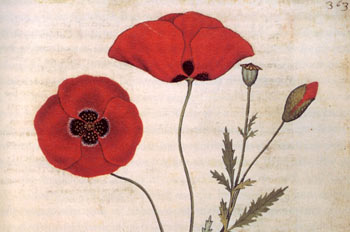
Songs of Love and War, tenor
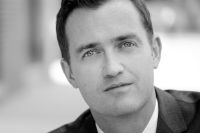
Aaron Sheehan, tenor
A first rate interpreter of the works of Bach, Handel and Mozart, Aaron Sheehan sang the title role in Boston Early Music Festival’s (BEMF’s) Grammy Award-winning recording of Charpentier’s La déscente d’Orphée aux enfers.
He made his professional operatic début with BEMF where his roles have included L’Amour and Apollon Psyché, Actéon Actéon, Orfeo Orfeo, Eurimaco Il ritorno d’Ulisse in patria, Acis Acis and Galatea and Liberto/Soldato L’incoronazione di Poppea. With Boston Baroque he sang Telemaco Il ritorno d’Ulisse in patria.
He has performed in concert at Tanglewood, the Lincoln Center, the Metropolitan Museum of Art, Washington National Cathedral, the Early Music Festivals of San Francisco, Vancouver, Washington DC, Carmel and Regensburg, and with Orpheus Chamber Orchestra, Handel and Haydn Society, Tafelmusik, North Carolina Symphony, New York Collegium, Charlotte Symphony, and Pacific Music Works.
Recent engagements include Orfeo Le Carnaval de Venise (BEMF), Messiah with Portland Baroque Orchestra, Bach Mass in B minor (Calgary Philharmonic and Boston Baroque), Alexander’s Feast (American Bach Soloists), Gluck’s Orphée (title role – Pacific Music Works), and performances of Handel Messiah, Bach Easter Oratorio, Monteverdi Vespers, Rameau Cantatas and Charpentier’s La Fête de Ruel.
Forthcoming performances include Apollon and Trajan Le Temple de la Gloire (Rameau – Philharmonia Baroque), Orfeo Le Carnaval de Venise (Campra – BEMF), Eumete Il ritorno d’Ulisse in patria (Opera Atelier), Mozart Requiem (Mercury Houston), and further performances of Messiah, St John Passion and Mass in B Minor.
His many recordings for BEMF include the Grammy nominated operas Thésée and Psyché, Agostino in Steffani’s Niobe, and also Acis Acis and Galatea.

Douglas Williams, bass
Douglas Williams, bass-baritone, has appeared this year in two landmark new opera productions from two of the world’s most celebrated director-choreographers: Handel’s Acis and Galatea in Mozart’s orchestration with Mark Morris at Lincoln Center in the role of Polyphemus, conducted by Nicolas McGegan, and Monteverdi’s Orfeo with Sasha Waltz at the Dutch National Opera in the role of Caronte, conducted by Pablo Heras-Casado. Both productions will tour this season taking Mr. Williams to the Grand Théâtre Luxembourg, Kansas City Kauffman Center, Bergen Festival,
Baden-Baden Festspiehaus, and Berlin Staatsoper. Other highlights of the season include Handel’s Agrippina with Boston Baroque, Pergolesi’s La Serva Padrona with the Boston Early Music Festival, and an appearance with James Levine and the Metropolitan Opera Chamber Ensemble at Carnegie Hall in Charles Wuorinen’s It Happens Like This, a piece that Mr. Williams premiered in 2011.
Visit Douglas on the web at: www.douglasrwilliams.com
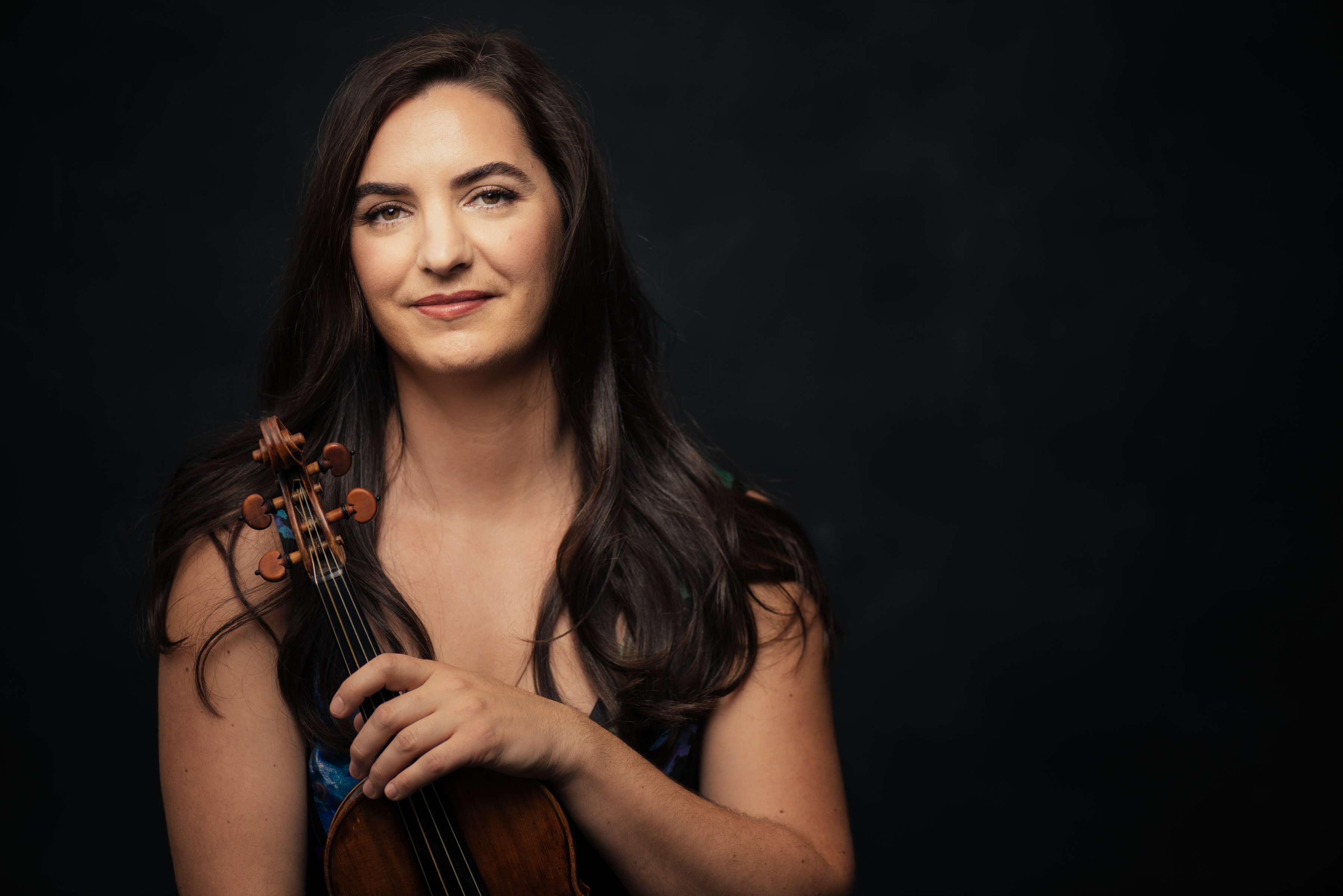
Tekla Cunningham, violin
Praised as “a consummate musician whose flowing solos and musical gestures are a joy to watch”, and whose performances have been described as “ravishingly beautiful”, “stellar”, “inspired and inspiring”, violinist Tekla Cunningham enjoys a multi-faceted career as a chamber musician, concertmaster, soloist and educator devoted to music of the baroque, classical and romantic eras. She is concertmaster and orchestra director of Pacific MusicWorks, and is an artist-in-residence at the University of Washington. She founded and directs the Whidbey Island Music Festival, now entering its fourteenth season, producing and presenting vibrant period-instrument performances of music from the 17th through 19th centuries, and plays regularly as concertmaster and principal player with the American Bach Soloists in California.
Tekla’s first solo album of Stylus Phantasticus repertoire from Italy and Austria will be released next year – music by Farina, Fonatana, Uccellini to Biber, Schmelzer and Albertini, with an extravagant continuo team of Stephen Stubbs, Maxine Eilander, Williams Skeen, Henry Lebedinsky.
Tekla received her undergraduate degree in History and German Literature at Johns Hopkins University while attending Peabody Conservatory. She studied at the Hochschule für Musik und Darstellende Kunst in Vienna Austria with Josef Sivo and Ortwin Ottmaier, and earned a Master’s Degree in violin performance at the San Francisco Conservatory with Ian Swenson.
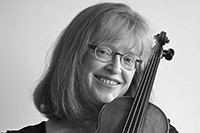
Linda Melsted, violin
The passionate artistry of violinist Linda Melsted has won the hearts of audiences across North America, Europe, and Japan. She has appeared as soloist, member, and leader of many outstanding ensembles including Tafelmusik Baroque Orchestra, Freiburg Baroque Orchestra, Portland Baroque Orchestra, Seattle Baroque Orchestra, Pacific Baroque Orchestra, and Pacific MusicWorks.
Linda is the featured soloist in Tafelmusik’s TV documentary, DVD, and CD “Le Mozart Noir,” where she musically incarnates the remarkable 18th-century virtuoso and adventurer, the Chevalier de Saint-Georges. An active chamber musician, Linda has appeared on many series including Early Music Vancouver, Gallery Concerts, Primavera Concerts, Bloomington Early Music Festival, the Calgary Symphony’s Italian Music Festival, Folia, Toronto Music Garden, Quadra Island Discovery Chamber Music Festival, and Tactus.
Linda was a member of Tafelmusik 1992-2004, Music Director of Nota Bene Baroque Orchestra, 2005-2009, a regular guest leader and soloist of the Kitchener-Waterloo Symphony Orchestra’s Baroque and Beyond series, and taught violin at the University of Waterloo. Happily back in Seattle since 2010, she formed the Salish Sea Players, a group dedicated to performing chamber music in retirement and nursing facilities and directs Seattle’s community Baroque orchestra, the New Baroque Orchestra. Linda performs on a Nicolo Amati violin from 1670.
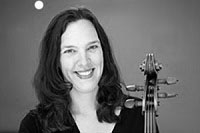
Elisabeth Reed, viola da gamba
Elisabeth Reed teaches viola da gamba and Baroque cello at the San Francisco Conservatory of Music, where she is also co-director of the Baroque Ensemble. Recent teaching highlights include master classes at the Juilliard School, the Shanghai Conservatory and Middle School, and the Royal Academy of Music. Her playing has been described as, “intense, graceful, suffused with heat and vigor” and “delicately nuanced and powerful” (Seattle Times). A soloist and chamber musician with Voices of Music, Archetti, Pacific Musicworks, and Wildcat Viols, she has also appeared with the Smithsonian Chamber Players, the Seattle, Portland, Pacific, and Philharmonia Baroque Orchestras, and the American Bach Soloists. She has performed at the Boston Early Music Festival, the Berkeley Early Music Festival, the Ohai Festival, the Whidbey Island Music Festival, and the San Luis Obispo Mozart Festival. She can be heard on the Virgin Classics, Naxos, Focus, Plectra, and Magnatunes recording labels and has many HD videos on the Voices of Music Youtube channel. She also teaches viola da gamba and Baroque cello at the University of California at Berkeley. She is a Guild-certified practitioner of the Feldenkrais Method of Awareness Through Movement, with a focus on working with musicians and performers.

Stephen Stubbs, lute and direction
Stephen Stubbs, who won the GRAMMY® Award as conductor for Best Opera Recording 2015, spent a 30-year career in Europe. He returned to his native Seattle in 2006 as one of the world’s most respected lutenists, conductors, and baroque opera specialists.
In 2007 Stephen established his new production company, Pacific MusicWorks, based in Seattle. He is the Boston Early Music Festival’s permanent artistic co-director, recordings of which were nominated for five GRAMMY awards. Also in 2015 BEMF recordings won two Echo Klassik awards and the Diapason d’Or de l’Année.
In addition to his ongoing commitments to PMW and BEMF, other recent appearances have included Handel’s Amadigi for Opera UCLA, Mozart’s Magic Flute and Cosi fan Tutte in Hawaii, Handel’s Agrippina and Semele for Opera Omaha, Cavalli’s Calisto and Rameau’s Hippolyte et Aricie for Juilliard and Mozart’s Il re pastore for the Merola program in San Francisco. He has conducted Handel’s Messiah with the Seattle, Edmonton, Birmingham and Houston Symphony orchestras.
His extensive discography as conductor and solo lutenist includes well over 100 CDs, which can be viewed at stephenstubbs.com, many of which have received international acclaim and awards.
Stephen is represented by Schwalbe and Partners (schwalbeandpartners.com).
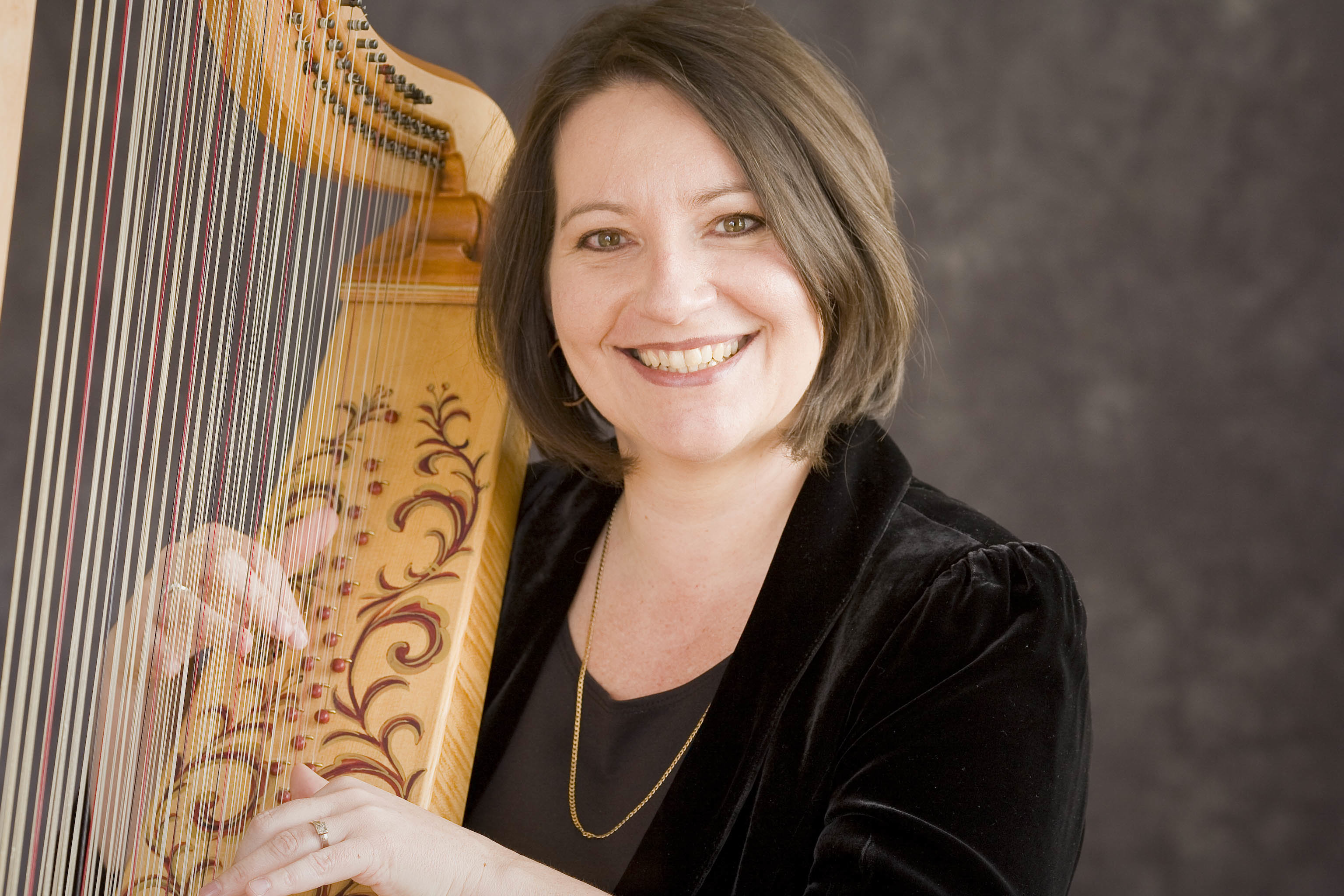
Maxine Eilander, harp & harpsichord
Seattle-based harpist Maxine Eilander first performed at the Boston Early Music Festival in 1999, and has been the regular harpist for Tragicomedia and the Festival’s operas ever since. Maxine has also performed at numerous opera houses and festivals such as Covent Garden, Staatstheater Stuttgart, and Netherlands Opera.
In 2012 Maxine was invited to perform Handel’s Harp Concerto at the World Harp Congress in Vancouver, B.C. As an administrator, Maxine was the Director of Education for Pacific MusicWorks starting in 2007, and in 2013 became PMW’s Managing Director.
Her recordings include Handel’s Harp, released on ATMA in 2009, with all of Handel’s obbligato music written for the harp, including his famous harp concerto, the 2008 release of William Lawes’ Harp Consorts (ATMA), Sonata al Pizzico, a recording of Italian music for harp and Baroque guitar with duo partner Stephen Stubbs (ATMA 2004), and Teatro Lirico, released on the ECM label in 2006.

